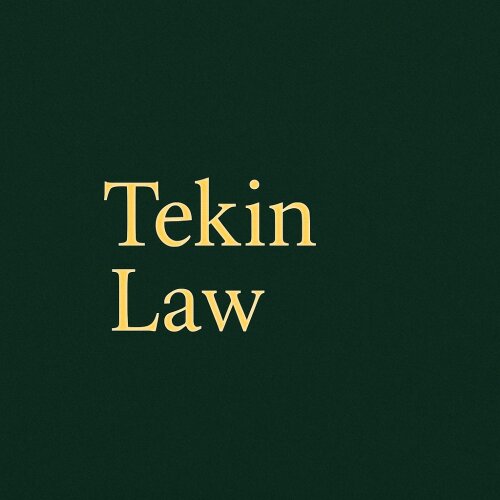Best Divorce & Separation Lawyers in Turkey
Share your needs with us, get contacted by law firms.
Free. Takes 2 min.
Free Guide to Hiring a Family Lawyer
Or refine your search by selecting a city:
List of the best lawyers in Turkey
Legal guides written by Tekin Law Firm:
- Arbitration in Turkey
Turkey Divorce & Separation Legal Articles
Browse our 1 legal article about Divorce & Separation in Turkey written by expert lawyers.
- How To Legally Get a Divorce in Turkey
- Table of ContentsIntroduction: The Judicial Process of Divorce in TurkeyThe Two Paths to Divorce: Uncontested vs. ContestedPath 1: The Uncontested Divorce (Anlaşmalı Boşanma)Eligibility RequirementsCreating the Divorce ProtocolThe Court HearingPath 2: The Contested Divorce (Çekişmeli Boşanma)Filing a Lawsuit on Legal GroundsThe Litigation Journey and EvidenceKey Decisions Made by the CourtChild Custody... Read more →
About Divorce & Separation Law in Turkey
Divorce and separation in Turkey are governed by the Turkish Civil Code. The legal proceedings can be complex, as they involve not only the dissolution of marriage but also aspects such as asset division, child custody, alimony, and support payments. The process begins with filing a petition for divorce, which can be based on mutual consent or contentious grounds. Turkish law allows for both fault and no-fault divorces, although the procedures and outcomes may vary. Understanding the intricacies of these laws is crucial for anyone considering or currently undergoing a divorce in Turkey.
Why You May Need a Lawyer
There are numerous situations where a lawyer's expertise can be invaluable in divorce and separation matters:
- Complex Asset Division: If the couple owns significant assets or businesses, a lawyer can help ensure fair division.
- Child Custody and Support: Navigating the laws surrounding custody and support to ensure they align with the best interests of the child.
- Dispute Resolution: When disputes arise, a lawyer can provide mediation or represent the client's interests in court.
- Legal Documentation: Assisting with the preparation and submission of necessary legal documents.
- Understanding Rights: Clarifying individual rights and obligations under Turkish law.
- Protection from Abuse: Legal assistance in obtaining restraining orders in cases of domestic violence.
Local Laws Overview
Key aspects of divorce and separation laws in Turkey include:
- Grounds for Divorce: Includes incompatibility, adultery, violence, desertion, mental illness, and several other grounds.
- Types of Divorce: Uncontested (mutual consent) and contested divorces. The former requires a minimum of one year of marriage.
- Child Custody: Courts decide based on the best interests of the child, considering factors like parent capability and child welfare.
- Property Division: Typically, assets acquired during the marriage are divided equally unless otherwise agreed upon.
- Alimony and Support: Financial support considerations for both spouses and children, based on needs and income levels.
- Mediation Requirement: In some cases, mediation may be mandated before a court proceeding.
Frequently Asked Questions
What are the legal grounds for divorce in Turkey?
The legal grounds include adultery, abandonment, maltreatment, perpetually intolerable behavior, mental illness, and irretrievable breakdown of the marriage.
What is the process for a mutual consent divorce?
Both parties must agree to the divorce and submit a written agreement covering issues like asset division and child custody. A marriage must have lasted at least one year.
How is child custody determined?
The court considers the child's best interests, examining factors such as parents' living conditions, stability, and emotional bonds with the child.
What if one parent is not paying child support?
The owed party can file a complaint to enforce the child support agreement, and non-compliance can lead to legal penalties.
How are marital properties divided upon divorce?
Marital properties are typically divided equally, though courts may consider various factors, including existing prenuptial agreements.
Can a divorce agreement be modified post-divorce?
Yes, individuals can request modifications to arrangements like child support or custody if there is a significant change in circumstances.
Is pre-marital property subject to division?
Generally, property acquired before marriage is not subject to division, unless it has been co-mingled with marital assets.
How long does the divorce process take in Turkey?
The duration varies. Mutual consent divorces can be finalized quickly, while contested divorces may take several years depending on the complexity.
What happens if one spouse refuses to sign divorce papers?
In such cases, the filing spouse can pursue a contested divorce proceeding through the court system.
Are prenuptial agreements enforceable in Turkey?
Yes, prenuptial agreements are legally binding if they meet formal requirements and do not violate public policy or fairness standards.
Additional Resources
Those seeking more information or assistance can contact the following:
- Turkish Ministry of Justice
- Family Courts
- Local Bar Associations
- Non-Governmental Organizations such as KASAD-D (Women's Support and Solidarity Foundation)
Next Steps
If you require legal assistance, consider the following steps:
- Consult with a specialized divorce lawyer experienced in Turkish family law.
- Gather and organize relevant documents, such as marriage certificates and property deeds.
- Consider mediation services as a cost-effective and amicable resolution method.
- Attend consultations to understand potential outcomes and legal strategies.
- Reach out to support groups and counseling services for emotional and psychological guidance during the process.
Lawzana helps you find the best lawyers and law firms in Turkey through a curated and pre-screened list of qualified legal professionals. Our platform offers rankings and detailed profiles of attorneys and law firms, allowing you to compare based on practice areas, including Divorce & Separation, experience, and client feedback.
Each profile includes a description of the firm's areas of practice, client reviews, team members and partners, year of establishment, spoken languages, office locations, contact information, social media presence, and any published articles or resources. Most firms on our platform speak English and are experienced in both local and international legal matters.
Get a quote from top-rated law firms in Turkey — quickly, securely, and without unnecessary hassle.
Disclaimer:
The information provided on this page is for general informational purposes only and does not constitute legal advice. While we strive to ensure the accuracy and relevance of the content, legal information may change over time, and interpretations of the law can vary. You should always consult with a qualified legal professional for advice specific to your situation.
We disclaim all liability for actions taken or not taken based on the content of this page. If you believe any information is incorrect or outdated, please contact us, and we will review and update it where appropriate.
Browse divorce & separation law firms by city in Turkey
Refine your search by selecting a city.

















